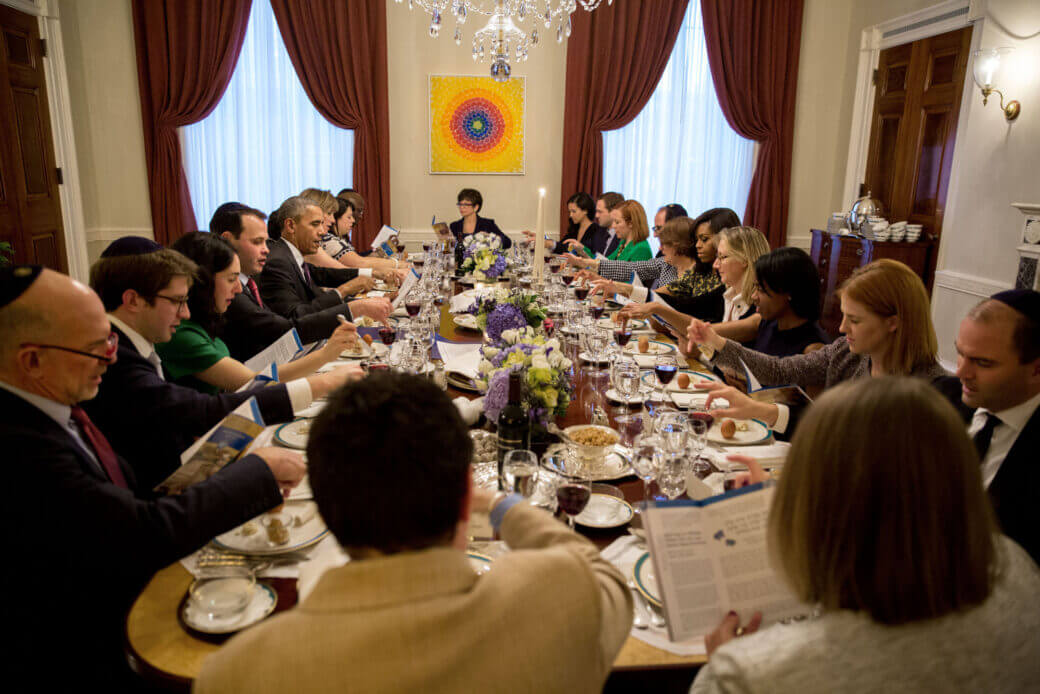Hot, Rare and Missed
James A. Goldman of New York writes to ask about Birkat Hachamah, the Blessing of the Sun — that once-in-28-years event in Jewish liturgy that, despite my best intentions, I slept through for the third time in my life when it was observed at sunrise Wednesday, April 8. As the sun peered over the horizon that morning, Jews stopped reciting their morning prayers to face it and say, “Blessed are You, O Lord our God, King of the universe, for repeating the deeds of Creation.” They then broke into song and dance.
The Blessing of the Sun is based on the Talmudic belief that the sun returns every 28th year to where it was in the sky at the moment of its creation on the fourth day of the Year One. Although the astronomy of this is complex, suffice it to say that the sages of the Talmudic age held that God created the world at the time of the vernal equinox in the spring month of Nisan, and as we are now in Nisan in the year 5769 — that is, 206 x 28 years later — last week marked the sun’s 206th anniversary. (As for the objection that the vernal equinox falls March 20 or 21 and not April 8, this discrepancy is explained by a combination of imprecise rabbinic calculations and Europe’s shift to the Gregorian calendar in 1582 from the Julian, as a result of which the Talmud’s spring now begins 17 days after Nature’s.)
Mr. Goldman’s query, however, has nothing to do with the calendar. What bothers him, rather, is, “Admittedly, it is more than a half century since I attended Hebrew school, but the Hebrew word for sun that I remember quite distinctly is shemesḥ” He wants to know why, when we bless the sun, we don’t say a birkat ha-shemesh rather than a birkat ha-ḥamah?
The answer to this is that shemesh *and *ḥamah *are synonyms for “sun” in Hebrew. Both go back to biblical times, with one or the other preferred in different stages of Hebrew’s history. *Shemesh, *the Hebrew cognate of an ancient Semitic word (in Arabic, it is *shams), was the everyday word in the period of the Bible, in which it occurs more than 120 times.
Ḥamah, *on the other hand, can be found only five times in the Bible. Formed from ḥam, “hot,” so that its literal meaning is “the hot one,” *ḥamah *was a relatively rare epithet for the sun that was reserved for literary or oratorical occasions. An exact parallel exists in Hebrew’s two words for the moon, *yare’aḥ *and *levanah *(literally, “the white one”), *yare’aḥ appearing in the Bible 25 times, levanah (from which comes the Yiddish word for “moon,” levoneh) but three.
Twenty-five is also the number of times shemesh *appears in Kohelet or Ecclesiastes, one of the last books, written in the third or second century BCE, to make it into the biblical canon; *ḥamah *is not found there at all. Yet when we come to the rabbinic Hebrew of the Mishnah, which was redacted about 250 C.E., the situation has been reversed: Now, *ḥamah *has become the common word for “sun” and *shemesh *is used rarely. (The same is true of *yare’aḥ *and *levanaḥ) In the intervening 500 or so years, from which we possess few literary remains, a once purely literary word had become popularized in ordinary speech and pushed aside its predecessor. This is why the Blessing of the Sun, a custom that (although it may be based on an older ceremony of some sort) is rabbinic rather than biblical, is called birkat ha-ḥamaḥ
Contemporary Israeli Hebrew, of course, is far removed from both biblical and rabbinic Hebrew, though in many matters of syntax and morphology it is closer to the latter. When it comes to vocabulary, however, it often favors the Bible. Thus, for example, given the choice of biblical ets *and Mishnaic *ilan, *both meaning “tree,” Israelis say *ets. *Similarly, they use biblical *anaḥnu *rather than Mishnaic *anu *for “we”; biblical *ne’arah *rather than Mishnaic *rivah *for “girl”; the biblical verb *gar *rather than the Mishnaic verb *dar *for “to dwell” or “to live [somewhere],” etc. And by the same token, they say *shemesh *and *yare’aḥ instead of *ḥamah *and *levanaḥ. *The pendulum has swung back again to where it was in the days of the Bible, in which *shemesh *was the everyday word for the sun and *ḥamah *a purely literary one.
I don’t know what Hebrew school Mr. Goldman attended when he was young, but I would assume that, though he may have studied a bit of Bible and Mishnah, the Hebrew he was taught was essentially the spoken Hebrew of Israel. Hence, the word he learned for “sun” was *shemesḥ *Today, I would say, the average Israeli uses *ḥamah *about once in 28 years, either when he participates in the Blessing of the Sun himself, or when, having slept through it, he sees it on the TV news.
Questions for Philologos can be sent to [email protected].
The Forward is free to read, but it isn’t free to produce

I hope you appreciated this article. Before you go, I’d like to ask you to please support the Forward.
At a time when other newsrooms are closing or cutting back, the Forward has removed its paywall and invested additional resources to report on the ground from Israel and around the U.S. on the impact of the war, rising antisemitism and polarized discourse.
Readers like you make it all possible. We’ve started our Passover Fundraising Drive, and we need 1,800 readers like you to step up to support the Forward by April 21. Members of the Forward board are even matching the first 1,000 gifts, up to $70,000.
This is a great time to support independent Jewish journalism, because every dollar goes twice as far.
— Rachel Fishman Feddersen, Publisher and CEO
2X match on all Passover gifts!
Most Popular
- 1

News A Jewish Republican and Muslim Democrat are suddenly in a tight race for a special seat in Congress
- 2

Film & TV What Gal Gadot has said about the Israeli-Palestinian conflict
- 3

Fast Forward The NCAA men’s Final Four has 3 Jewish coaches
- 4

Fast Forward Cory Booker proclaims, ‘Hineni’ — I am here — 19 hours into anti-Trump Senate speech
In Case You Missed It
-

Film & TV Val Kilmer was the voice of my generation’s Moses (and God)
-

Fast Forward Cory Booker spoke at a synagogue on Yom Kippur. Its rabbi says Jews should learn from his 25-hour Senate speech.
-

Fast Forward Cory Booker’s rabbi has notes on Booker’s 25-hour speech
-

Fast Forward Naftali Bennett is back: Former Israeli prime minister will make another run at Netanyahu
-
Shop the Forward Store
100% of profits support our journalism
Republish This Story
Please read before republishing
We’re happy to make this story available to republish for free, unless it originated with JTA, Haaretz or another publication (as indicated on the article) and as long as you follow our guidelines.
You must comply with the following:
- Credit the Forward
- Retain our pixel
- Preserve our canonical link in Google search
- Add a noindex tag in Google search
See our full guidelines for more information, and this guide for detail about canonical URLs.
To republish, copy the HTML by clicking on the yellow button to the right; it includes our tracking pixel, all paragraph styles and hyperlinks, the author byline and credit to the Forward. It does not include images; to avoid copyright violations, you must add them manually, following our guidelines. Please email us at [email protected], subject line “republish,” with any questions or to let us know what stories you’re picking up.














